I thought I'd share a little about something I do often. I make zines, or small mini booklets. I am not sure where 'zine' came from, but it is a part of the word 'magazine.' They aren't quite as beefy or put together as magazines usually are. They are usually handmade, and are often made using glue, scissors and paper. Some folks now integrate online programs like Indesign, or use other analog techniques like Letterpress. I've done all of these techniques.
Since I live on the road, I make them pretty simple with the technology I have on hand. I go copy my finished project at print shots in whatever town I am in, lately it has been the Fedex copy/print places because they have the basic things I need and the printer's quality is decent.
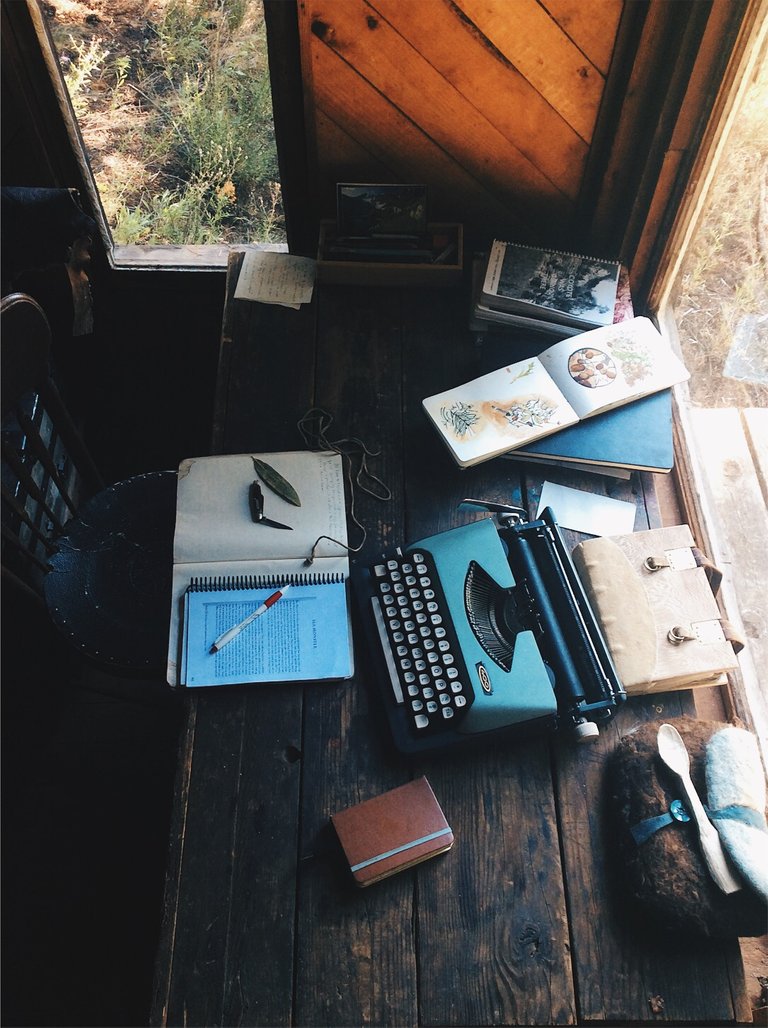
Here's a little shot of making zines last year this time. I actually just arrived yesterday to this same spot in Hood River, Oregon that I spent a month last year cabin sitting while making zines and carving spoons. My friend doesn't live in this specific cabin anymore (sadly) but lives in one right next door on the same land with her partner.
I took the time last year to process my experiences from months backpacking and studying craft, and dealing with ongoing grief- and channeled it into making my first big zine.
I started by folding paper how I wanted it to lay out. The size and shape I predetermined.
I then starting writing on my typewriter shown above.
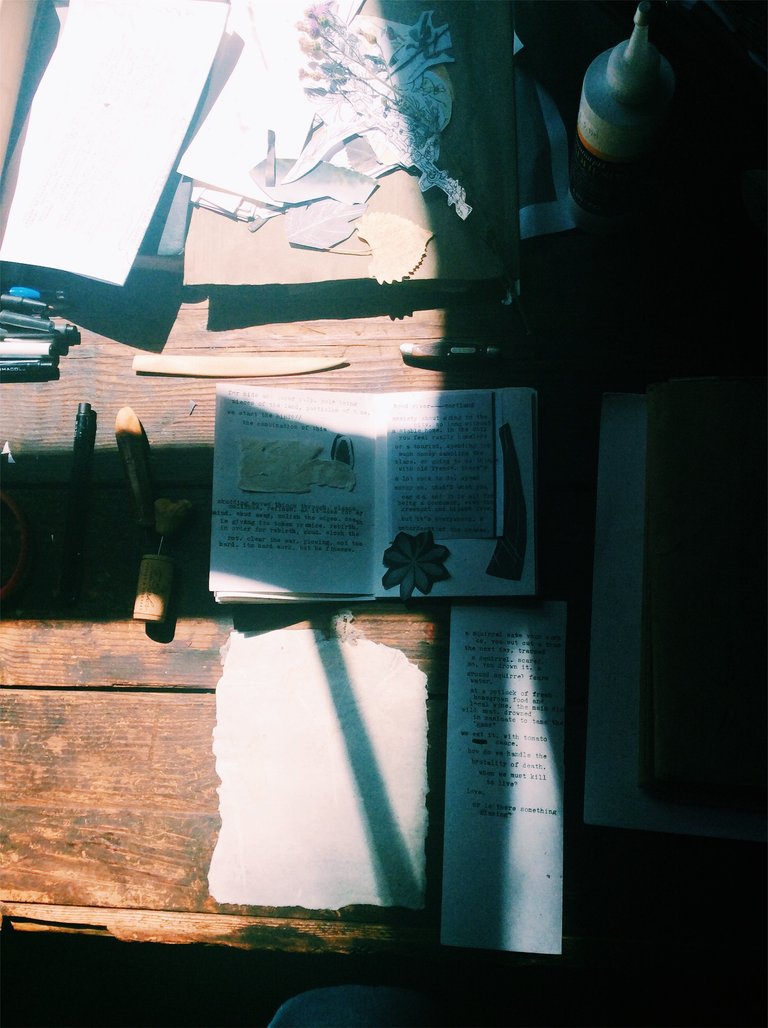
The cabin didn't have electricity, and I didn't have a scanner/printer, so I took trips to town with drawings, random plant matter, cyanotypes I made on the road, and other things, and copied them at the Fedex store. I took these copies back to the cabin and played around with collage and arrangement inside of the blank booklet with glue.
You can make a zine any way you want really. That's what is so cool about them. They are totally up to the creator. There does not have to be words, or even photographs. It doesn't have to be in color, and could easily be in just black and white. The could be short or long, large or small.
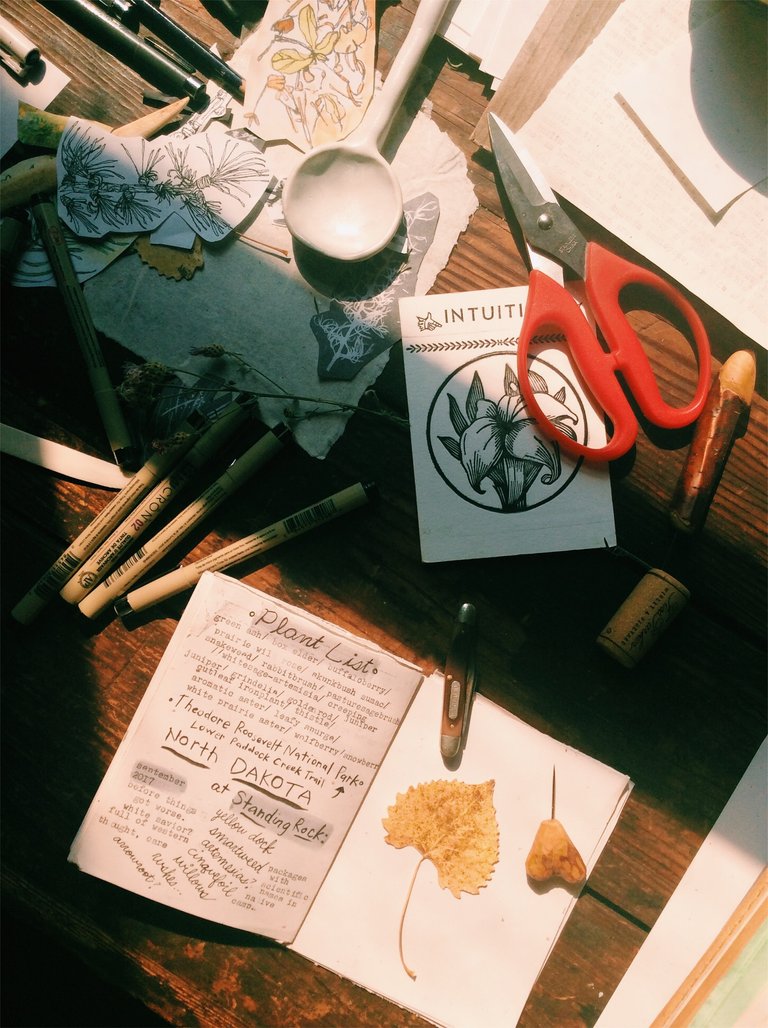
I used some pens I had, the basic craft supplies and slowly over a week put together this zine. I took some writing that was even three years old and included it in the booklet. I put everything together really intentionally, in a theme I didn't state but it was there. I make zines about how we treat the land, about what I see while traveling, the seeming paradoxes in the everyday life of humans. The ecological travesties. The abandoned towns. The plants familiar and unfamiliar.
Since the first one I did last summer, I've made a handful more. Some are in color, some use paint and others are just the same style with copied plants and drawings. The typewriter has been a consistent theme. I'd love to do some with fancier paper at some point.
.jpg)
After I finished copy pasting the collaged artwork, and the typed out text, I looked the glued together booklet over. I took it to the Fed ex store when I was satisfied to try to copy it. It took a second to figure it all out. Printing two sided, and also getting things lined up takes learning a few tricks. I like the expanded copy centers because they have machines you can program to print two-sided easily. You can pick out colored paper they have there or just do it all on black and white. Sometimes I do a thicker paper for the cover.
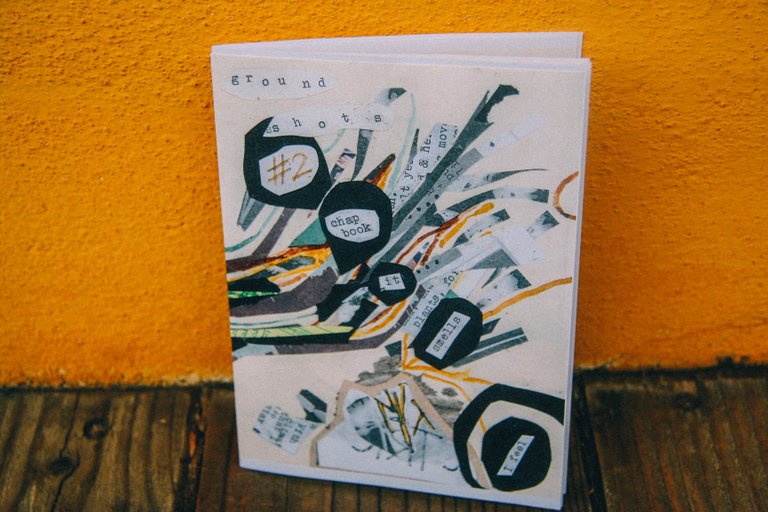
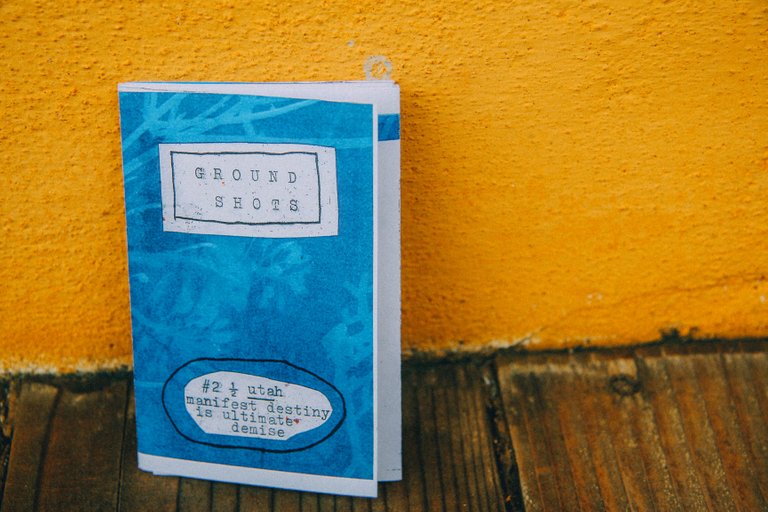
Most of my zines have a plant-based theme. I make lists on the road, spend time studying them, observing. Sometimes I draw. I add those elements into the booklets. After I print them at the copy shop, I then cut them with a paper cutter. I don't have one and wouldn't be able to store one in my camper, so I depend on using the one in the shop. They can cut a few pieces of paper at once. I cut the zines to shape, and then spend time pre-folding them. If you're bookbinding geeky, you'd use a 'bone folder' here, a tool usually made of bone, to get the creases really tight, so when the books are finally found they lay nice and aren't bulky.
Then I ask if they have a 'booklet' stapler because most normal staplers don't have enough space for the book pages to fit. I staple right on the spine from the outside in so the staple ends are on the inside. I often then touch up the zine edges so that they are even, if the zine isn't too thick. This is a detail I do on the paper cutter, but isn't totally necessary. Again, none of this is actually really necessary. This is just the way I do it.
I think it would be cool to see more zines out there being passed around full of people's personal life stories and experiences. Or, focused on things we know how to do, and sharing how with others. What I like about zines is that they can be shared and passed along easily. Many of them fit really well in pockets. There's something to holding a tangible thing in your hands, too.
They can also be scanned and made readable digitally! I am working on that right now. I'd have to take the time to scan, and then get onto Indesign and then make them into flippable digital books. I'm sure there are many cool ways to interface analog zines with the digital realm.
Have you ever made books or zines by hand? Ever wanted to? As you see, anyone can do it, and it is pretty easy. Even I have been able to pull it off traveling and living out of my camper.
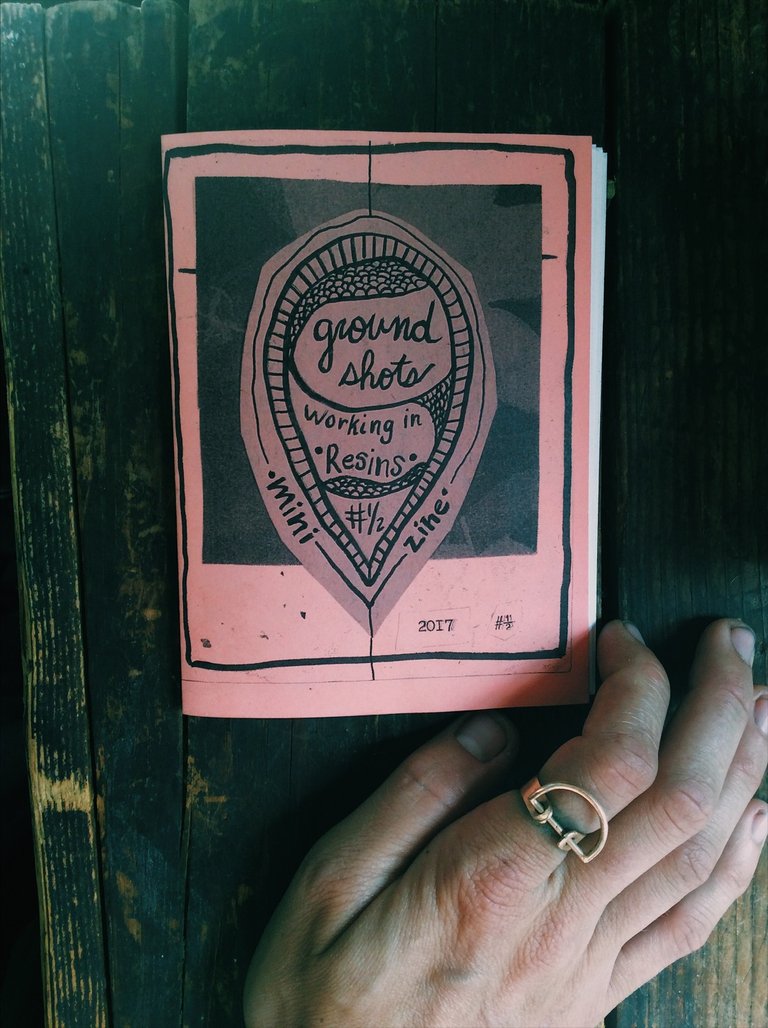
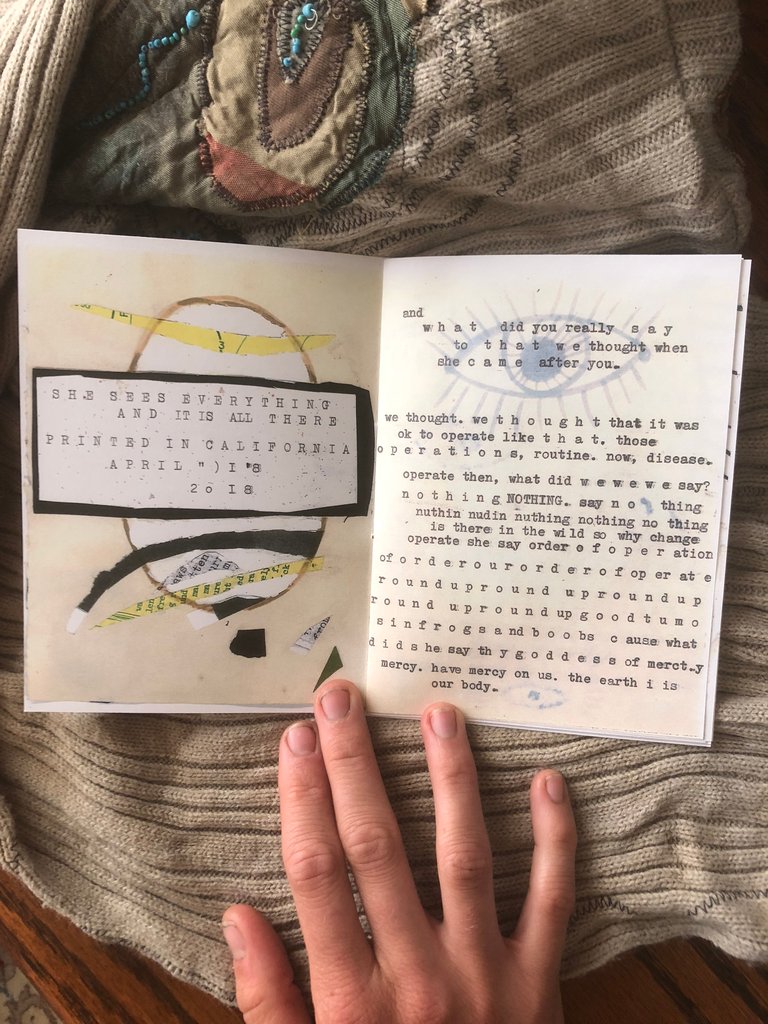
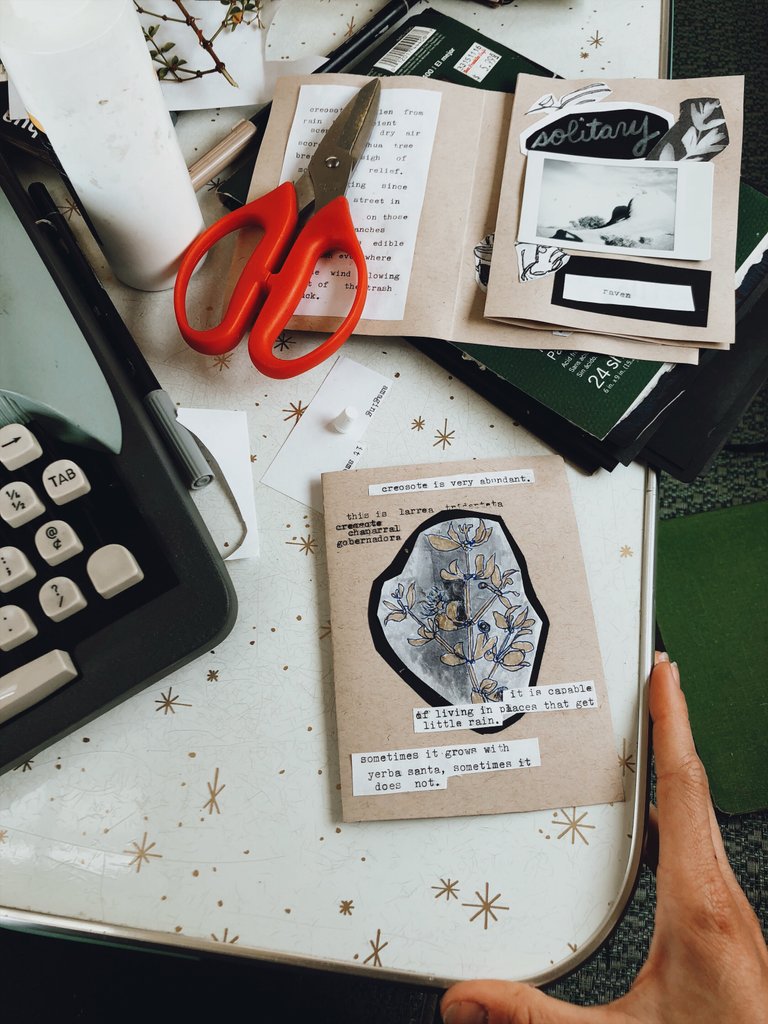
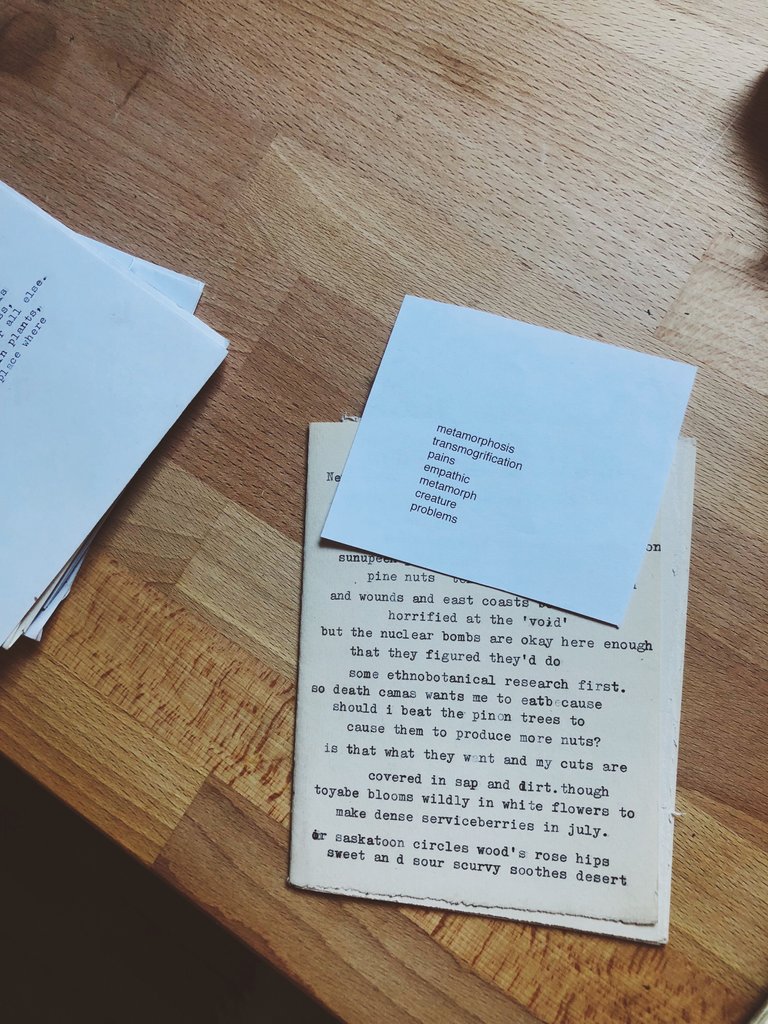
Amazing, I love your zine design. This is the first time I am coming about something like this. Thank you for taking out time to teach us here. This reminded me when I made pocket jotters all by myself.
what are pocket jotters? and thank you for reading! it would be cool to start a zine trading thing on here because so many of us are from far and wide. i think they are amazing pieces of art!